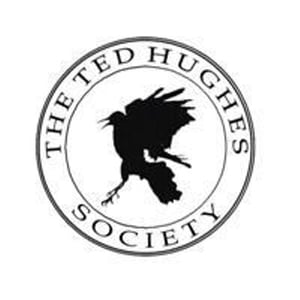Translations by Ted Hughes
Vasko Popa
Tara Bergin (PhD Student at Newcastle University) examines Ted Hughes’s admiration of Vasko Popa’s poetry.
Vasko Popa (1922 – 1991) was a Serbian poet, born in Vršac. Ted Hughes, who did not speak Serbo-Croat, first came to read Popa’s poetry in English translation in 1964 and was immediately impressed. Hughes never attempted to translate Popa but was always a great supporter of his work, including a selection of his poems in the very first issue of Modern Poetry in Translation in 1965. [1] Four years later, Hughes wrote his ‘Introduction’ to Popa’s Selected Poems, [2] a piece of criticism which tells one as much, if not more, about Hughes as it does about Popa.
In this introduction, Hughes seems particularly taken by what he calls Popa’s ‘folk-tale surrealism,’[3] and the way that Popa combines a strangeness of imagery with familiar, down-to-earth observations. Hughes also notes Popa’s successful use of certain devices, such as ‘the little fable of visionary anecdote’, [4] and a tendency to write in cycles, and there is much evidence of the influence that these aspects of Popa’s poetry may have had on Hughes’s own writing, especially in collections such as Crow and Gaudete.
Several scholars have recognised a similarity between Hughes’s discussion of Popa in his introduction, and his own personal poetic development. In The Art of Ted Hughes, Keith Sagar refers to Hughes’s comment that Popa’s poetry was ‘purged of rhetoric’, observing that the style of Crow was ‘very much such a purged style.’[5] Ekbert Faas makes similar connections, and has written extensively on the subject. In his study of Hughes, The Unaccommodated Universe (the title is taken from Hughes’s introduction to Popa), Faas writes that, ‘Hughes’ comparison between literary and folklore surrealism, drawn in his 1967 essay on Vasko Popa, indirectly describes the poet’s own development under the influence of primitive poetry.’[6] Hughes’s introduction to Popa then, is in fact highly relevant to the study of Hughes’s own poetry.
Of course a key point to remember here is that Hughes read Popa in translation which, as Hughes put it, meant that ‘the poetic texture of the verbal code has been cancelled.’[7] Such a loss no doubt added to the attraction for Hughes however, who believed that sacrificing the constraints of grammar and sentence structure could at times allow writers ‘to break fresh and accurate perceptions and words out of the reality of the subject chosen.’[8] For Hughes therefore, Popa’s poetry had in a way been ‘purged’ of rhetoric twice – both in the original, and then again through translation. This attraction to the ‘stripping’ effect of translation is another important part of Hughes’s poetic sensibility, and can be detected throughout Hughes’s writings on the subject.
Hughes’s introduction to Popa has been criticised for its sometimes over-dramatic descriptions. Edwin Morgan said that while Hughes was obviously an admirer of Popa’s work, ‘his introduction is less than helpful, if you are looking for objective and specific pointers to what Popa is doing.’[9] John Bayley, in a review for The New York Review of Books, expressed similar doubts. Referring to the introduction’s opening paragraph, in which Hughes suggests that Popa’s poetry is ‘equipped for life in a world where people actually do die,’ [10] Bayley writes: ‘Popa’s poetry is emphatically not “equipped” in the sense Hughes means, and I think Hughes, naturally enough, is reading his own fantasies and preoccupations into it.’[11]
For Hughes scholars, of course, this means that Hughes’s introduction to Vasko Popa is a highly valuable resource. Even if it fails, as Morgan suggests, to give a straightforward insight into Popa’s work, the essay is indispensible if we are trying to identify and examine Hughes’s own poetic interests. It reveals the qualities he most appreciated and admired, allowing one to gain a deeper understanding of his own aims and desires as a poet.
Tara Bergin is Lecturer in Poetry (Creative Writing) at Newcastle University. Her PhD was on the subject of Ted Hughes’s translations of János Pilinszky. In 2010 her commentaries were displayed alongside extracts from the Ted Hughes Archive, as part of the exhibition ‘The Evolution of Crow‘(Emory University). Her debut poetry collection was This is Yarrow (Manchester: Carcanet Press, 2013) and her poems have been published in Poetry London, Poetry Review, Modern Poetry in Translation and Poetry Nation Review. She writes reviews for Poetry Review.
Notes
1. These poems were translated by Anne Pennington and Aleksander Stefanovic.
2. Hughes’s Introduction was initially used for Penguin’s Selected Poems of Vasko Popa (1969).
3. Ted Hughes, ‘Introduction’ to Vasko Popa, Collected Poems, trans. Anne Pennington & Francis Jones (London: Anvil, 1997), p. xxvi. [Hereafter, ‘TH, ‘Introduction’ to VP, CP].
4. ibid.
5. Keith Sagar, The Art of Ted Hughes (Cambridge: Cambridge University Press, 1975), p. 136.
6. Ekbert Faas, Ted Hughes: The Unaccommodated Universe (US: Black Sparrow Press, 1980), p. 104.
7. TH, ‘Introduction’ to VP, CP, p. xxiv.
8. Ted Hughes, Poetry in the Making (London: Faber, 1967), p. 23.
9. Edwin Morgan, ‘East European Poets’, Open University: 20th Century Poetry, Unit 32 (Milton Keynes: Open University Press, 1976), p. 18.
10. TH, ‘Introduction’ to VP, CP, p. xxi.
